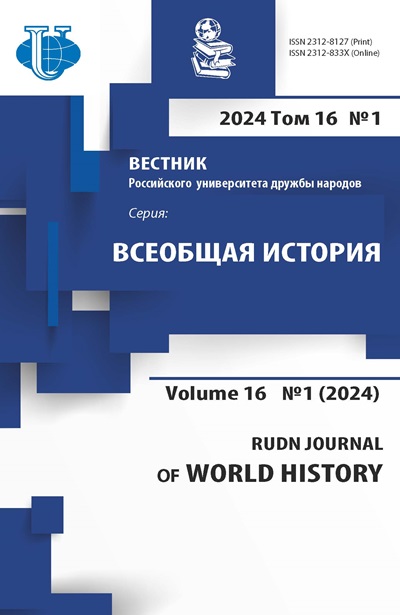SANUSIYYA ORDER: RELIGIOUS DOCTRINE AND MAJOR ACTIVITIES (THE MIDDLE OF THE NINETEENTH - EARLY TWENTIETH CENTURY)
- Authors: Voronin SA.1
-
Affiliations:
- Peoples’ Friendship University of Russia
- Issue: No 2 (2016)
- Pages: 5-13
- Section: Articles
- URL: https://journals.rudn.ru/world-history/article/view/13573
Cite item
Full Text
Abstract
The author refers to the study of the formation, and the specifics of the political culture of the XIX century the population of Libya, senusizma evolution as a moderator of national integration. By the end of the nineteenth century. spiritual power Senussi Order reached its peak, becoming a kind of "papacy". Messianism and the sanctification of life and leadership became the basis of ideological doctrine senusitov, advocated the creation of a national of an Arab state. In pragmatic terms of the roots of success senusitov seen in the construction of a similar structure to the Zawiya tribal organization of the indigenous population. Al-Mahdi, the son of the Grand Senussi, developed a brotherhood as a powerful political organization. He managed to create a political union built on a synthesis of the dominant power of centripetal and centrifugal tribal vectors. Sanusiyya order was a buffer between the low tradition of pre-Islamic beliefs jahiliyyah and great cultural tradition of Islam. The sanusi programme acted as a synthesis of Sunni Islam and Sufism, is an example of popular religiosity, folklore and syncretic Islam, built on the cult of the family and available "saints", joining the believers and the Prophet. This senusizm fulfilled its historic mission allotted popular religiosity - to ensure social integration and laid the foundation of nation-building. Sanusiyya order acted as a guarantor of political stability in exchange for recognition of their leading role in the political, social and economic process.
About the authors
S Anatol'evich Voronin
Peoples’ Friendship University of Russia
Email: svoronin.rudn@mail.ru
Department of World History
References













